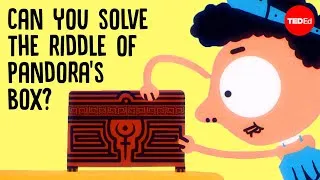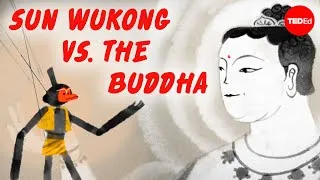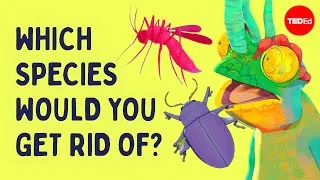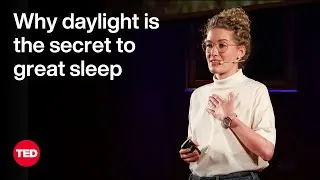English Contractions - Improve Your Pronunciation of Contractions in English
185,847 views ・ 2018-04-06
請雙擊下方英文字幕播放視頻。
00:01
Hi, I’m Maria. Welcome to Oxford Online
English! In this lesson, you can learn about
0
1370
6580
嗨,我是Maria,歡迎來到Oxford Online
English !本節課裡,您會學到
00:07
the pronunciation of contractions. You’ll
see how to make contractions, how to pronounce
1
7950
7179
縮讀字的發音規則,您會了解
怎樣縮讀,他們又是如何
00:15
them, and when to use contractions in English.
2
15129
5881
發音的,以及在英文裡什麼時候要用縮讀。
00:21
What are contractions?
3
21010
3080
什麼是縮讀?
00:24
Contractions are when we put two words together
by making one word shorter.
4
24090
5270
縮讀是兩個字構成一個更短的字。
00:29
For example:
5
29360
1000
例如:
00:30
He is --> He’s
They will --> They’ll
6
30360
8740
He is --> He’s They will --> They’ll
00:39
Do not --> Don’t
7
39100
3430
Do not --> Don’t
00:42
But which words can you make contractions
from?
8
42530
6470
但哪些字可以縮讀構成一個更短的字呢?
00:49
Here are the words that can make contractions
in English:
9
49000
3699
下面這些字在英文中可以縮讀:
00:52
am,
are,
10
52699
2471
am, are,
00:55
is,
will,
11
55170
3040
is, will,
00:58
would,
have,
12
58210
2980
would, have
01:01
has,
had.
13
61190
2629
has, had.
01:03
Let’s see an example in a sentence:
14
63819
3831
我們來看一個例句:
01:07
You are the nicest person I have ever met.
15
67650
4860
您是我見過的最好的人。
01:12
We can make two contractions here. Can you
see where?
16
72510
5390
這句話裡,有兩個地方可以縮讀。
您知道是哪兩個地方嗎?
01:17
You can contract you are to you’re, and
I have to I’ve.
17
77900
5180
you are可以縮讀成you're,
I have縮讀成I've。
01:23
You’re the nicest person I’ve ever met. The
pronunciation of contractions can change depending
18
83080
7310
You’re the nicest person I’ve ever met.
縮讀的發音速度可以根據
01:30
on how fast you’re speaking. The pronunciation
can be quite clear and ‘textbook’:
19
90390
6120
您的語速而改變。您可以說得像課本一樣準確和清晰:
01:36
You’re the nicest person I’ve met.
20
96510
4380
You’re the nicest person I’ve met.
01:40
Or, the pronunciation can be faster and weaker:
21
100890
4150
或者縮讀部份可以說得更快、更弱:
01:45
You’re the nicest person I’ve met.
22
105040
3080
You’re the nicest person I’ve met。
01:48
This fast, weak pronunciation is very common.
23
108120
3710
這種速度和弱音很常見。
01:51
Let’s do another example:
24
111830
3200
我們再來看一個例句:
01:55
They will think he has gone completely mad!
25
115030
4630
他們會認為他已經徹底瘋了!
01:59
Can you see where we can make contractions?
Here’s the answer:
26
119660
5740
您能看出句子裡哪個地方可以縮讀嗎?
答案就是:
02:05
They’ll think he’s gone completely mad!
Many English learners find contractions with
27
125400
7369
They’ll think he’s gone completely mad!
很多學英文的人會覺得縮讀
02:12
will difficult to pronounce.
28
132769
2681
很難發音。
02:15
Let’s practice quickly: say they’ll.
29
135450
6360
那我們現在就開始練習:跟我唸 they'll。
02:21
As you pronounce the vowel, /eɪ/, slide your
tongue forward to add the /l/ sound.
30
141810
9649
當您發元音/eɪ/時,
向前滑動舌頭多發一個/l/音。
02:31
They’ll They’ll Now, try the full sentence:
31
151459
7390
They’ll, They’ll.
現在試著唸整個句子:
02:38
They’ll think he’s gone completely mad! Let’s
try one more time: they’ll think he’s
32
158849
10191
They’ll think he’s gone completely mad!
我們再唸一次:they’ll think he’s
02:49
gone completely mad! Again, this time at natural
speed: they’ll think he’s gone completely
33
169040
10069
gone completely mad!
這次,我們再用自然語速唸一遍:
they’ll think he’s gone completely
02:59
mad! Let’s do one more example:
34
179109
5470
mad! 我們再做一個練習:
03:04
I am sure she would call if anything had happened.
35
184579
4981
I am sure she would call if anything had happened.
03:09
Here, you can make three contractions. Can
you see them?
36
189560
7000
這個例句裡有三個地方可以縮讀。您找到了嗎?
03:16
We can make contractions with am, would and
had:
37
196560
4549
他們是am, would 和 had:
03:21
I’m sure she’d call if anything’d happened.
Try saying the sentence. Let’s do it together,
38
201109
7860
I’m sure she’d call if anything’d happened.
我們一起慢速唸一遍:
03:28
slowly: I’m sure she’d call if anything’d
happened. Let’s try it once more, at natural
39
208969
12791
I’m sure she’d call if anything’d happened.
我們再用自然語速唸一遍:
03:41
speed: I’m sure she’d call if anything’d
happened. Do you notice anything here? There
40
221760
10671
I’m sure she’d call if anything’d happened.
您有注意到什麼嗎?
03:52
are two things which we need to pay attention
to.
41
232431
3978
這個例句裡有兩個地方要我們關注:
03:56
Firstly, different words (had and would),
can have the same contraction: ‘d.
42
236409
6730
首先,兩個不同的字(had和would)都可以縮讀成:'d
04:03
Secondly, the pronunciation of the ‘d contraction
is different in she’d and anything’d.
43
243139
6610
其次,'d在she'd和anything'd裡的發音是不一樣的。
04:09
Do you know why?
44
249749
1761
這是為什麼呢?
04:11
Let’s find out!
45
251510
1230
我們來看看!
04:16
Most contractions have two different pronunciations.
46
256160
5140
大多數縮讀形式都有兩種不同的發音。
04:21
The only contractions which never change are
will and am. Contractions of will are always
47
261300
7260
但will和am 例外,他們的發音永遠只有一種。
所以,will縮讀唸’ll
04:28
pronounced ‘ll. Am is always ‘m.
48
268560
5820
am縮讀唸'm。
04:34
Contractions of are, is, would, have, has
and had can have different pronunciations.
49
274380
8170
像are, is, would, have, has 和 had
這些字的縮讀就會有不同的發音。
04:42
Why does the pronunciation change? It mostly
depends on the sound before the contraction.
50
282550
6470
為什麼發音會變呢?
這大部份取決於縮讀形式之前的字的發音。
04:49
Sometimes, it depends on the sound after the
contraction.
51
289020
4250
有時候,也取決於縮讀形式之後的字的發音。
04:53
For would, have, and had, it depends whether
the sound before the contraction is a vowel
52
293270
6350
would, have, 和 had這幾個字,他們的發音
就要看縮讀前面的音是元音
04:59
or a consonant.
53
299620
2220
還是輔音。
05:01
The contraction of have is pronounced /v/
after a vowel sound:
54
301840
6080
當have在元音之後縮讀時,‘ve唸/v/音:
05:07
I’ve,
we’ve,
55
307920
3940
I’ve, we’ve,
05:11
they’ve.
56
311860
1970
they’ve。
05:13
After a consonant, the contraction of have
is pronounced /əv/:
57
313830
3800
如果他在輔音之後,'ve唸/əv/音:
05:17
could’ve,
would’ve,
58
317630
4300
could’ve, would’ve,
05:21
might’ve.
59
321930
2150
might've。
05:24
The same rule is true for would and had. The
contraction is pronounced /d/ after a vowel,
60
324080
7690
這個規則同樣適用於would和had。
他們的縮讀在元音之後,’d唸/d/音,
05:31
and /əd/ after a consonant:
61
331770
2060
在輔音之後,唸/əd/音:
05:33
I’d,
she’d,
62
333830
3339
I’d, she’d,
05:37
But:
63
337169
1000
但是,
05:38
it’d,
Tom’d.
64
338169
3180
像it’d, Tom’d
05:41
There’s one exception to this: if someone’s
name ends with a vowel sound, we usually treat
65
341349
6040
有一個例外:如某人的名字最後一個音
是元音,我們通常
05:47
it like a consonant for contractions. So,
if you want to say:
66
347389
5071
會把它當做縮讀形式前面的輔音。所以,當您想說:
05:52
Sophie’d help you if you asked her.
Even though Sophie ends with a vowel sound,
67
352460
6220
Sophie’d help you if you asked her 時,
因為Sophie是人名,所以即使它
05:58
we generally pronounce the contraction as
/əd/, because it’s a name.
68
358680
6139
最後一個音是元音,
一般縮讀會唸成/əd/。
06:04
Notice how I said ‘usually’ and ‘generally’?
It’s because this isn’t exactly a rule.
69
364819
6791
請注意我講的是“通常”和“一般”情況下,
因為這準確地說不算是一種規則。
06:11
It’s more common, and I advise you to follow
it, but not all native speakers speak this
70
371610
6489
這種發音很常用,我建議您這樣做,
但同時要知道不是所有母語人士
06:18
way all the time.
71
378099
1741
都會這樣一直說。
06:19
Next, let’s look at is and has.
72
379840
4420
接下來,我們看看is和has。
06:24
The contraction of is and has is pronounced
/z/ after most sounds:
73
384260
6100
大多數情況下,is和has的縮讀
都唸/z/音。
06:30
he’s,
there’s,
74
390360
4010
he’s, there’s,
06:34
Dave’s.
75
394370
2000
Dave's。
06:36
However, after /t/, /p/, /k/, /f/ or /θ/,
the contraction of is or has is pronounced
76
396370
7359
但在/t/, /p/, /k/, /f/或/θ/音之後,
縮讀會唸
06:43
/s/.
77
403729
2351
/s/。
06:46
it’s,
Seth’s,
78
406080
3360
it’s, Seth’s,
06:49
top’s.
79
409440
2289
top’s。
06:51
We don’t contract is or has after the sounds
/tʃ/, /ʃ/, /dʒ/, /ʒ/, /s/ or /z/, because
80
411729
9150
另外,is和has在/tʃ/, /ʃ/, /dʒ/, /ʒ/, /s/
或 /z/這些音之後不縮讀。
07:00
the contraction would be impossible to pronounce
clearly.
81
420879
4771
因為縮讀後,字根本無法清晰唸。
07:05
That leaves are. Are is a bit different, because
the pronunciation depends on the sound after,
82
425650
6799
最後一個——are。are有些不同,它的
縮讀唸法取決於他之後的音,
07:12
not before. Look at an example:
83
432449
2821
而不是之前的音。我們來看一個例子:
07:15
We’re a good team.
We’re the best team.
84
435270
5180
我們是一個出色的團隊,我們是最好的團隊。
07:20
Before a vowel sound, the contraction of are
has a /r/ sound. Before a consonant sound,
85
440450
6439
在元音之前,縮讀唸/r/。
07:26
the contraction is pronounced as a schwa sound:
/ə/.
86
446889
3941
在輔音之前,唸schwa音/ə/。
07:30
Now, you’ve seen common contractions and
how to pronounce them.
87
450830
5020
現在,您學習了一些常用的縮讀形式以及唸法。
07:35
Next, let’s look at the pronunciation of
negative contractions.
88
455850
8760
接下來,我們學習否定形式的縮讀唸法。
07:44
If you have an auxiliary verb plus not, you
can put the words together and contract not
89
464610
5109
如果助動詞+not,您可以合併放在助動詞之後,
07:49
to n’t.
90
469719
2641
並縮讀n't。
07:52
For example:
91
472360
1790
例如:
07:54
do not --> don’t
is not --> isn’t
92
474150
5739
do not --> don’t is not --> isn’t
07:59
have not --> haven’t
would not --> wouldn’t
93
479889
6051
have not --> haven’t would not --> wouldn’t
08:05
This isn’t a full list.
94
485940
2060
這裡沒有一一列出全部的清單。
08:08
There’s one which is a bit strange: will
not contracts to won’t.
95
488009
5380
另外,還有一個字是比較奇怪的:
will not 的縮讀是won’t.
08:13
Also, you can’t make a negative contraction
with am not. You can’t say amn’t. Why
96
493389
7471
還有,am not沒有縮讀,您不能說amn't。
08:20
not? I can’t even say amn’t. Saying amn’t
is really difficult. That’s why.
97
500860
7579
為什麼呢?那是因為amn't 這個形式很難
唸,甚至唸不出來。
08:28
Let’s try a few examples. Look at this sentence.
Where can you make contractions?
98
508439
6851
下面,我們做一些練習。請看下面的例句,哪個地方是可以縮讀的?
08:35
He does not understand why they did not help
him.
99
515290
5309
He does not understand why they did not help
him.
08:40
We can contract this to:
100
520599
2281
我們可以這樣縮讀:
08:42
He doesn’t understand why they didn’t
help him.
101
522880
3310
He doesn’t understand why they didn’t help him.
08:46
Let’s practice together. Say the sentence
after me, slowly: He doesn’t understand
102
526190
8000
接著,請大家跟著我一起慢速唸:
He doesn’t understand
08:54
why they didn’t help him. Now, let’s try
again, at natural speed: He doesn’t understand
103
534190
12390
why they didn’t help him. 現在,我們嘗試用
自然語速再唸一次:
He doesn’t
09:06
why they didn’t help him. Let’s do another:
104
546580
6930
understand why they didn’t help him.
09:13
They are not happy that the company has not
told them anything.
105
553510
5420
They are not happy that the company has not
told them anything.
09:18
There are two contractions here. Can you see
them?
106
558930
4860
這裡有兩個地方縮讀,您找到了嗎?
09:23
They aren’t happy that the company hasn’t
told them anything. Repeat the sentence after
107
563790
6470
They aren’t happy that the company hasn’t
told them anything.請大家
09:30
me: They aren’t happy that the company hasn’t
told them anything. Try once more: They aren’t
108
570260
12530
跟我唸:They aren’t happy that the company
hasn’t told them anything.再來一次:
09:42
happy that the company hasn’t told them
anything.
109
582790
6510
They aren’t happy that the company
hasn’t told them anything.
09:49
We’ll do one more example:
110
589300
3640
我們再做例句練習:
09:52
You should not have said yes if you could
not do it.
111
592940
5320
You should not have said yes if you could
not do it.
09:58
Where are the possible contractions here?
112
598269
3301
這個例句裡的哪個地方要縮讀呢?
10:01
You shouldn’t have said yes if you couldn’t
do it.
113
601570
3970
You shouldn’t have said yes
if you couldn’t do it.
10:05
Repeat the sentence after me: You shouldn’t
have said yes if you couldn’t do it.
114
605540
11980
請跟我重複唸一次:You shouldn’t have
said yes if you couldn’t do it.
10:17
Try once more: You shouldn’t have said yes if
you couldn’t do it. Sometimes with negative
115
617520
11500
多練習一次:You shouldn’t have said yes
if you couldn’t do it.有時,
10:29
contractions, there are two possible contractions.
For example:
116
629029
5451
否定含義的縮讀有兩種形式。
10:34
They are not here yet.
117
634480
2890
例如:他們還沒到這裡。
10:37
You could contract this to:
118
637370
2340
您可以縮讀:
10:39
They aren’t here yet.
119
639710
2189
They aren’t here yet.
10:41
Or:
120
641899
1221
或者是:
10:43
They’re not here yet.
121
643120
3290
They’re not here yet.
10:46
In most places, the first option is more common.
That means you contract not.
122
646410
6350
在很多地方,第一種是很常見的,
也就是說您縮讀not。
10:52
However, both are correct, and it doesn’t
matter which one you use.
123
652760
5170
但這兩種形式都是正確的,
您用哪一個都可以。
10:57
So now you know how to form and pronounce
common contractions, but when should you use them?
124
657930
6550
現在您已經知道怎樣縮讀以及怎樣唸了,
但是您什麼時候用他們呢?
11:08
Generally, you should use contractions when
125
668100
3200
一般來說,您說英文時就要用了。
11:11
you speak. Using contractions sounds more
natural in spoken English.
126
671310
5490
在英文口說中用縮讀會更自然。
11:16
Look at an example from earlier:
127
676800
2010
我們看之前的一個例句:
11:18
He does not understand why they did not help
him.
128
678810
4540
He does not understand why they did not help him.
11:23
If you’re speaking to someone, and you say
this sentence without the contractions, it
129
683350
4220
如果您和別人說話時不縮讀,
11:27
sounds a bit robotic and unnatural. Try it—say
the sentence out loud with no contractions.
130
687570
7130
聽起來有點像讀稿機,不自然。
您可以試著用這種方式大聲的唸出來。
11:34
Doesn’t it sound a bit strange?
Pronouncing the contractions makes it sound
131
694700
7770
有沒有一點怪怪的?所以,
用縮讀方式會讓句子聽起來
11:42
much more natural:
132
702470
2520
更自然。
11:44
He doesn’t understand why they didn’t
help him.
133
704990
3420
He doesn’t understand why they didn’t help him.
11:48
So, are there any cases where you shouldn’t
use contractions?
134
708410
6070
那麼,什麼時候您不能縮讀?
11:54
If you’re speaking more formally, you might
use fewer contractions.
135
714480
5549
在正式場合,我們盡量少用。
12:00
If you want to emphasise something, you shouldn’t
use contractions. For example:
136
720029
5750
當您想強調某件事,不縮讀。
12:05
That is not what I said.
He is the best player.
137
725779
6601
例如:我不是那麼說的。他是最棒的球員。
12:12
I have called several times.
138
732380
3509
我已經打過很多次電話了。
12:15
You need to use the full, uncontracted form
if you need to emphasise the verb or negative.
139
735889
6411
如果您想強調某個動作或否定含義時,
需要用完整的無縮讀方式。
12:22
There’s one more case where you can’t
use contractions: don’t use positive contractions
140
742300
7180
還有一種您不能縮讀的狀況:從句或句末,
12:29
at the end of a sentence or clause.
141
749480
3799
不要用肯定含義的縮讀。
12:33
For example, if someone asks you:
142
753279
2691
例如,有人問您:
12:35
Is he ready?
143
755970
1330
Is he ready?
12:37
You should answer:
144
757300
1070
您應該回答:
12:38
Yes, he is.
145
758370
2010
Yes, he is.
12:40
And not:
146
760380
1420
而不是:
12:41
Yes, he’s.
147
761800
1920
Yes, he’s.
12:43
However, negative contractions can go at the
end of a sentence or clause, so it’s fine
148
763720
6400
但是,句尾或從句裡可以用否定形式的縮讀,
12:50
to say:
149
770120
760
12:50
No, he isn’t.
150
770880
3160
可以這樣說:
No, he isn’t.
12:54
What about written English?
151
774040
1989
那麼,在英文寫作裡又怎樣呢?
12:56
You can use contractions in informal writing;
you probably shouldn’t use contractions
152
776029
5620
如果是非正式的書寫,可以用縮讀形式,
但如果是很正式的寫作,例如論文,
13:01
in formal writing, like an essay.
153
781649
3380
就不應該用縮讀形式。
13:05
Also, many contractions are used in speech
but not generally in writing. For example,
154
785029
7601
還有就是,演講裡可以用縮讀,但文章裡一般不用。例如
13:12
you can say:
155
792630
1000
您可以說:
13:13
These’re the chocolates that your friends’ve
sent us.
156
793630
4100
These’re the chocolates that your friends’ve
sent us.
13:17
This’d be a good time to think about it.
157
797730
4760
思考這個問題正式時候。
13:22
Contractions like these’re, friends’ve
and this’d aren’t often used in written
158
802490
5709
像是these're, friends've和this'd這些縮讀就不會常出現在
13:28
English, even in very informal writing.
159
808199
4711
英文寫作裡,甚至是不太正式的
寫作裡也不會用。
13:32
If you’re not sure if you can use a contraction
or not when you’re writing, then just use
160
812910
5789
如果您在寫作時不確定是否要用縮讀形式,
13:38
the full form.
161
818699
1771
那就不用。
13:40
There are some more contractions like this,
which are common in spoken language, but which
162
820470
4390
像這樣的縮讀還有很多,通常是在口說裡,
13:44
aren’t written down.
163
824860
1680
但不會寫下來。
13:46
Let’s take a look:
164
826540
1280
我們看看:
13:50
Here’s a sentence:
165
830640
2700
有這樣一個例句:
13:53
They would have enjoyed it, but they would
not have stayed long.
166
833340
5400
They would have enjoyed it, but they would
not have stayed long.
13:58
What contractions can you make here?
167
838740
2940
您可以在這用什麼縮讀?
14:01
Well, would contracts to ‘d, and have contracts
to ‘ve. What does that give us? In the first
168
841680
10060
好,would縮讀唸'd,have縮讀唸've。我們得到了什麼?
14:11
part, you should say:
169
851740
1980
在首部份,您要說:
14:15
They’d’ve enjoyed it…
Listen once more: They’d’ve enjoyed it...
170
855800
6540
They’d’ve enjoyed it…聽多一次:
They’d’ve enjoyed it…
14:22
Try one more time, a little faster: They’d’ve
171
862340
4000
再聽一次,這次快一點:
They’d’ve enjoyed it…
14:26
enjoyed it… What about the second part of
the sentence?
172
866350
6940
那後面的部份呢?
14:33
Not contracts to n’t. Have contracts to
‘ve. So, you say:
173
873290
6020
這裡not縮讀唸n't,have縮讀唸‘ve。
所以,您會說:
14:39
…but they wouldn’t’ve stayed long.
Try saying the whole sentence with the contractions:
174
879310
6759
…but they wouldn’t’ve stayed long.
試著唸一下有縮讀的整句話:
14:46
They’d’ve enjoyed it, but they wouldn’t’ve
stayed long. Try once more, at natural speed:
175
886069
12041
They’d’ve enjoyed it, but they wouldn’t’ve stayed long.
自然語速再來一次:
14:58
They’d’ve enjoyed it, but they wouldn’t’ve
stayed long. Do these contractions look weird?
176
898110
10080
They’d’ve enjoyed it, but they wouldn’t’ve stayed long.
覺得這些縮讀怪怪的嗎?
15:08
If so, it’s because we almost never write
them.
177
908190
4810
如果覺得怪怪的,那是因為我們從來不會這樣寫。
15:13
What other contractions are like this?
178
913000
2660
還有哪些類似的縮讀?
15:15
You can contract did to ‘d in speaking,
but not in writing:
179
915660
5940
您能在口說時縮讀did唸’d,但是寫作裡不可以:
15:21
Why did you tell her? --> Why’d you tell
her?
180
921600
4789
Why did you tell her? --> Why’d you
tell her?(您為什麼告訴她了?)
15:26
When did you get here? --> When’d you get
here?
181
926389
5911
When did you get here? --> When’d you
get here?(您什麼時候到這裡的?)
15:32
How did you like it? --> How’d you like
it?
182
932300
4380
How did you like it? --> How’d
you like it?(您覺得怎樣?)
15:36
You can contract will have to ‘ll’ve and
would have to ‘d’ve:
183
936680
7420
您可以縮讀will have唸'll've,
would have 縮讀唸‘d've:
15:44
They will have left by now. --> They’ll’ve
left by now.
184
944100
5640
They will have left by now. --> They’ll’ve
left by now.(現在他們應該已經離開了。)
15:49
We would have been late anyway. --> We’d’ve
been late anyway.
185
949740
6770
We would have been late anyway. --> We’d’ve
been late anyway.(無論如何,我們都會遲到。)
15:56
You can contract not have after a modal verb
to n’t’ve:
186
956510
6449
您可以把情態動詞之後的not have
縮讀唸'n't've:
16:02
They could not have helped. --> They couldn’t’ve
helped.
187
962959
4021
They could not have helped. --> They
couldn’t’ve helped.(他們不可能幫過忙。)
16:06
I would not have said anything. --> I wouldn’t’ve
said anything.
188
966980
6970
I would not have said anything. --> I wouldn’t’ve
said anything.(我什麼都沒說。)
16:13
Remember: use these contractions when you
speak, but not in writing!
189
973950
5860
記住:您只能在口說裡縮讀,在寫作裡不可以!
16:19
You can find more free English lessons on
our site: Oxford Online English dot com.
190
979810
5819
您可以在我們的Oxford Online English
dot com裡找到更多的免費課程。
16:25
Thanks for watching!
191
985629
1621
感謝觀看!
16:27
See you next time!
192
987250
1050
再見!
New videos
Original video on YouTube.com
關於本網站
本網站將向您介紹對學習英語有用的 YouTube 視頻。 您將看到來自世界各地的一流教師教授的英語課程。 雙擊每個視頻頁面上顯示的英文字幕,從那裡播放視頻。 字幕與視頻播放同步滾動。 如果您有任何意見或要求,請使用此聯繫表與我們聯繫。







